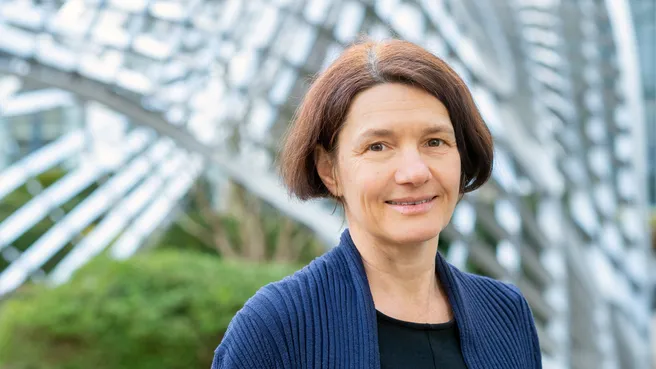Her research is mainly basic research: an important motive is to understand the functioning of these plant materials for the plant organism. In the long term, the insights are intended to contribute to the more sustainable use of plant materials.
What fascinates Michaela Eder most about her field?
I am fascinated by how plants build functional materials with just a few, mainly sugar-based building blocks such as cellulose or hemicelluloses. A simple example of this would be the scales of the pine cone, which only move due to changes in humidity and thus release the seeds at the right time.
The starting point for this research was our limited understanding of the natural variability of biological materials and the fact that the tree organism does not produce wood for human use, but for itself and to fulfill its own needs. Our motivation is to bridge the gap between the functionality of dead tissues for the tree and a more sustainable use of materials.
Our research activities focus not only on wood, but also on other lignified (i.e. woody) and dead plant materials such as bark, seed coats and capsules. Here, we also focus on the functionalities for the plant. We take into account the localized nature of plants as well as the fact that the ability of plants to adapt is limited to growth: Remodeling processes, such as in bones, are missing.
How did the first semester turn out for Michaela Eder?
" Educational, exhausting and enjoyable. I was heavily involved in teaching right from the start. The support of some of my new colleagues was very helpful - thank you for that! The interactions with students from different semesters gave me an insight into knowledge an interests, to popular and less popular topics. This will now help me to hopefully plan and design my teaching better in the summer semester. I myself have also learned an incredible in this semester."
